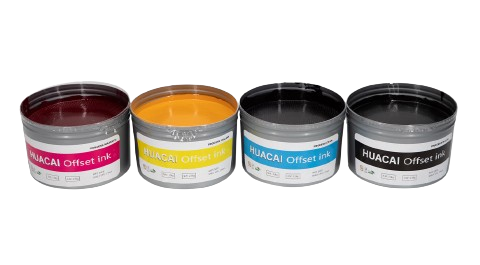Offset printing ink, a crucial component in the world of printing, has stood the test of time, continually evolving to meet the demands of the ever-changing printing industry.
Application Fields
Offset printing ink is predominantly used in commercial printing, where high-quality, bulk printing is required. Its application spans various sectors including, but not limited to, publishing (books, magazines, newspapers), packaging (boxes, cartons, labels), and advertising (brochures, flyers, posters). The versatility of offset printing ink makes it a preferred choice for a wide array of substrates, including paper, cardboard, and certain types of plastic, thereby broadening its application field significantly.
Product Characteristics
Offset printing ink is known for its exceptional color fidelity and ability to produce fine, detailed images. This is largely due to its formulation, which is a careful blend of pigments, resins, solvents, and additives. Each component plays a pivotal role: pigments provide color, resins bind the pigment to the substrate, solvents ensure the ink maintains the correct consistency for printing, and additives enhance performance characteristics such as drying time and rub resistance.
A key characteristic of offset printing ink is its method of drying. Most offset inks dry through absorption into the substrate, followed by oxidative polymerization of the oils in the ink, which solidifies the ink film on the surface. This process, while slightly slower than some modern drying methods, contributes to the high-quality finish that offset printing is known for.
Product Advantages
The advantages of offset printing ink are numerous, making it a popular choice for high-volume printing jobs. Firstly, it offers exceptional print quality with precise color reproduction and the ability to print fine details. This is crucial in applications where brand colors need to be accurately replicated or where high-quality imagery is essential.
Secondly, offset printing ink is cost-effective for large runs due to the economies of scale. Although the initial setup costs can be high, the cost per unit decreases significantly with the volume of prints, making it an economical choice for large orders.
Thirdly, offset printing ink is compatible with a wide range of substrates, offering flexibility in the choice of printing materials. This adaptability makes it suitable for a diverse array of projects, from high-end brochures to standard business cards.
Printing Field Scope
The scope of offset printing is extensive, encompassing various sectors and types of projects. In the publishing sector, it is the go-to method for printing high volumes of books and magazines, where quality and cost-effectiveness are paramount. In the packaging industry, offset printing is used for creating vibrant, high-quality prints on packaging materials, an essential aspect of brand presentation and marketing. Additionally, in the advertising sector, offset printing excels in producing large quantities of promotional materials, where visual appeal and color accuracy are critical.
Conclusion
Offset printing ink plays a pivotal role in the printing industry, offering unparalleled quality, versatility, and cost-effectiveness. Its application across various sectors underscores its importance in commercial printing, packaging, and advertising. As technology advances, the evolution of offset printing ink continues, ensuring it remains a vital tool in the printing arsenal. The combination of its product characteristics and advantages makes it an enduring choice for high-quality, high-volume printing needs, solidifying its place in the printing field.


